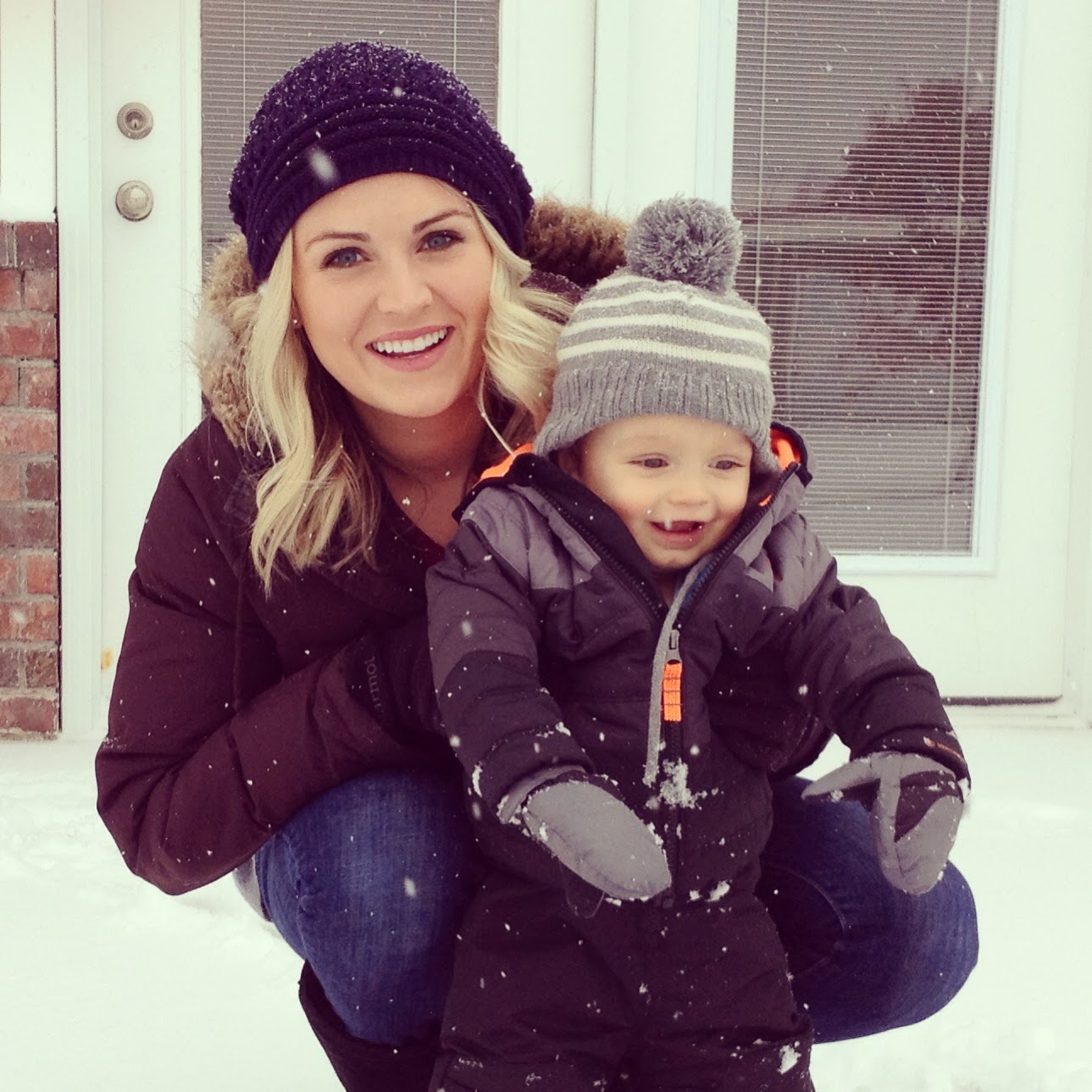After 6 months of trying to teach him sign language with no success, he's suddenly started doing the signs for eat, more, milk, all done, hurt, water, cracker, and please. One day he was babbling so I said,"Oh really? Tell me more." He looked so confused (because we only ever do this sign at meal time) and very slowly started doing the 'more' sign. It was adorable.
He's also started talking and says mama, dada, baboo (balloon), tuh (truck), dah (dog), chee (cheese), tee (teeth), and key. Almost every time we walk into the bathroom, he says "tee, tee, tee" over and over again until we brush his teeth. He loves brushing his teeth and does it probably five times a day.
One of his absolute favorite things to do is help with the laundry. He actually gets mad if I don't let him help.
He took his first (and second and third and fourth) plane ride when we went to visit my parents for Christmas and he did awesome for most of it and then terribly at the end.
He took his long awaited first steps on January 29th and now he walks everywhere, just for the sake of walking. He'll literally just walk laps in the living room for 10 minutes.
He loves clapping for himself (boy has no issues when it comes to self-esteem) after he knocks things down or puts a puzzle piece in the wrong place. Ha! He also starts clapping if he hears applause on the radio or TV.
He waves a lot, but it has to be spontaneous. If we try to get him to do it on command, forget about it. That's true for most things, actually.
He got to play in the snow for the first time.
He loves blowing raspberries, on belly buttons or otherwise. He thinks belly buttons are hilarious.
I feel like the terrible twos have come early, because this boy is boss at sass and temper tantrums. He's also loves exploring everything.
 |
| Stuck in the shoe rack. |
 |
| Stuck in the couch. |
He mastered climbing the stairs a while ago, but has figured out how to turn around and go down them. He flies!
This scowl is a regular occurrence.
He loves climbing in his car seat and playing in it when it's out.
He loves playing peek-a-boo, with or without hands and has learned how to stack blocks and put toys away.
He stills loves watching the train behind our apartment and waves to it as it goes by.
He's really understanding relationships between things. Like, he'll take my phone and put it up to his ear, or he'll get into my bathroom drawer and get my blowdryer in one hand and brush in the other and put both up to his head. He also points to his lips every time he sees chapstick and then immediately sticks his tongue out when the cap comes off because he loves the taste.
Every day he does something new and it's amazing to see him learn and grow.















